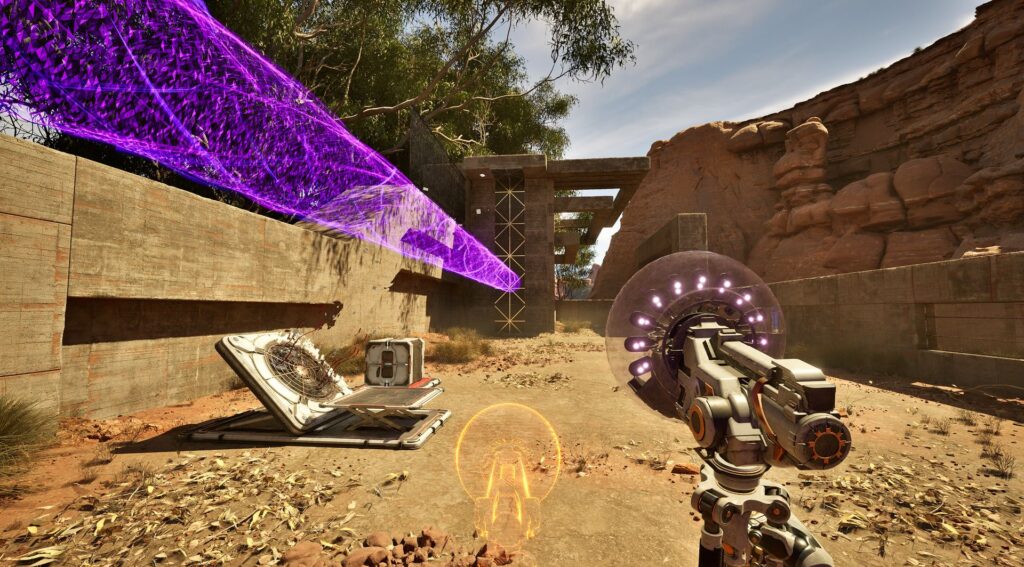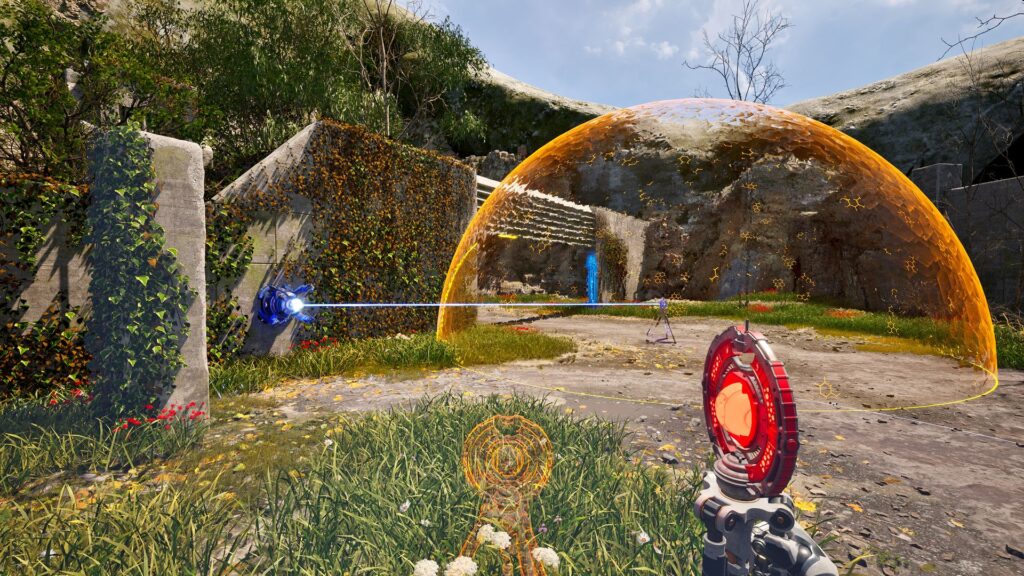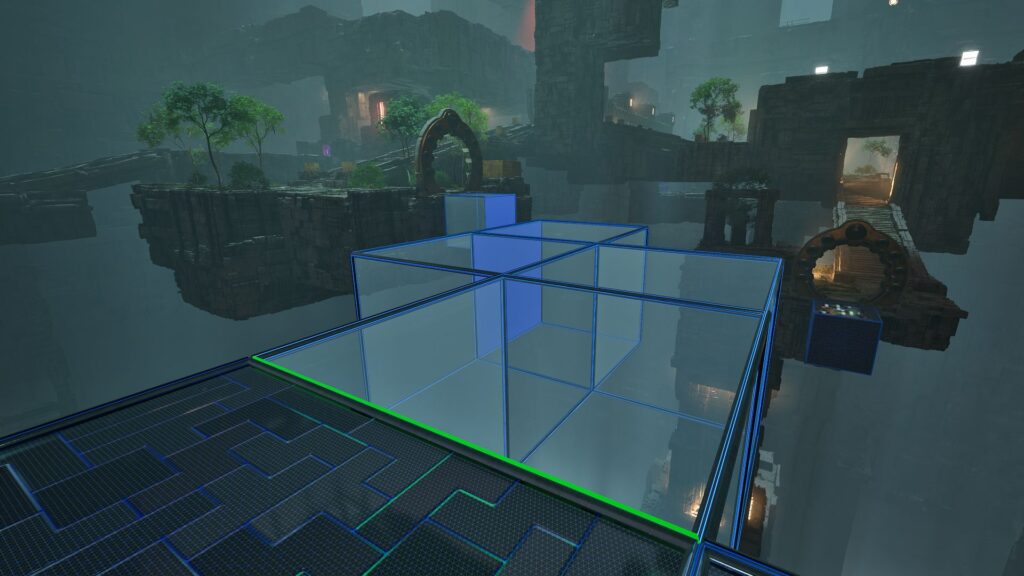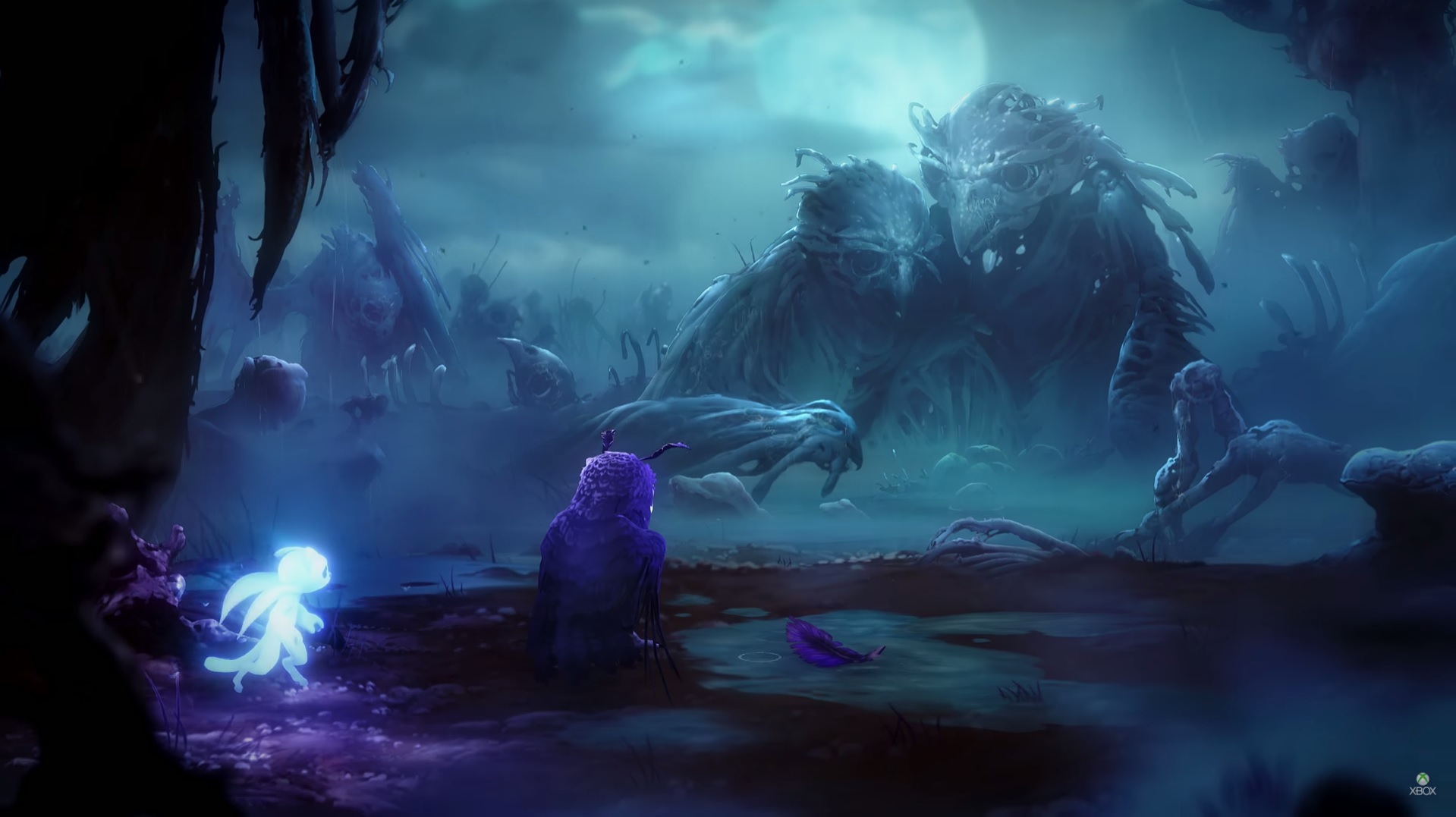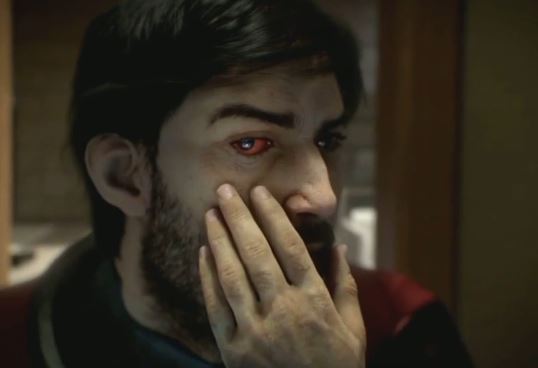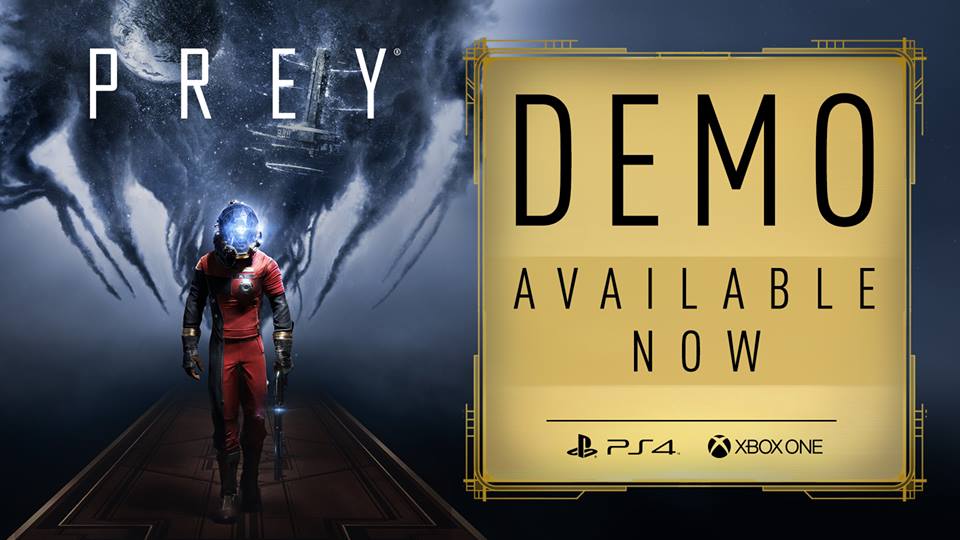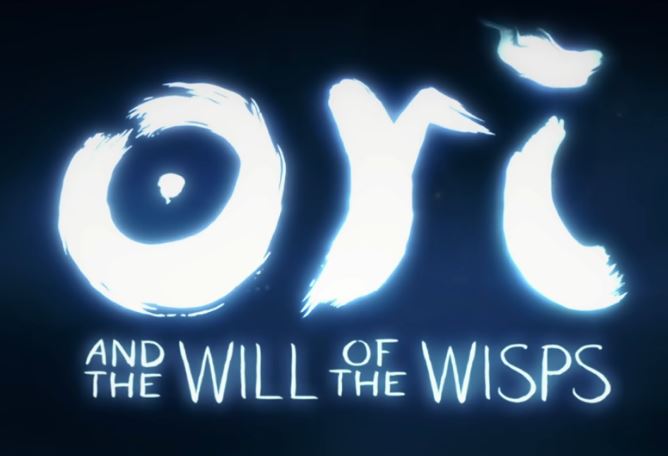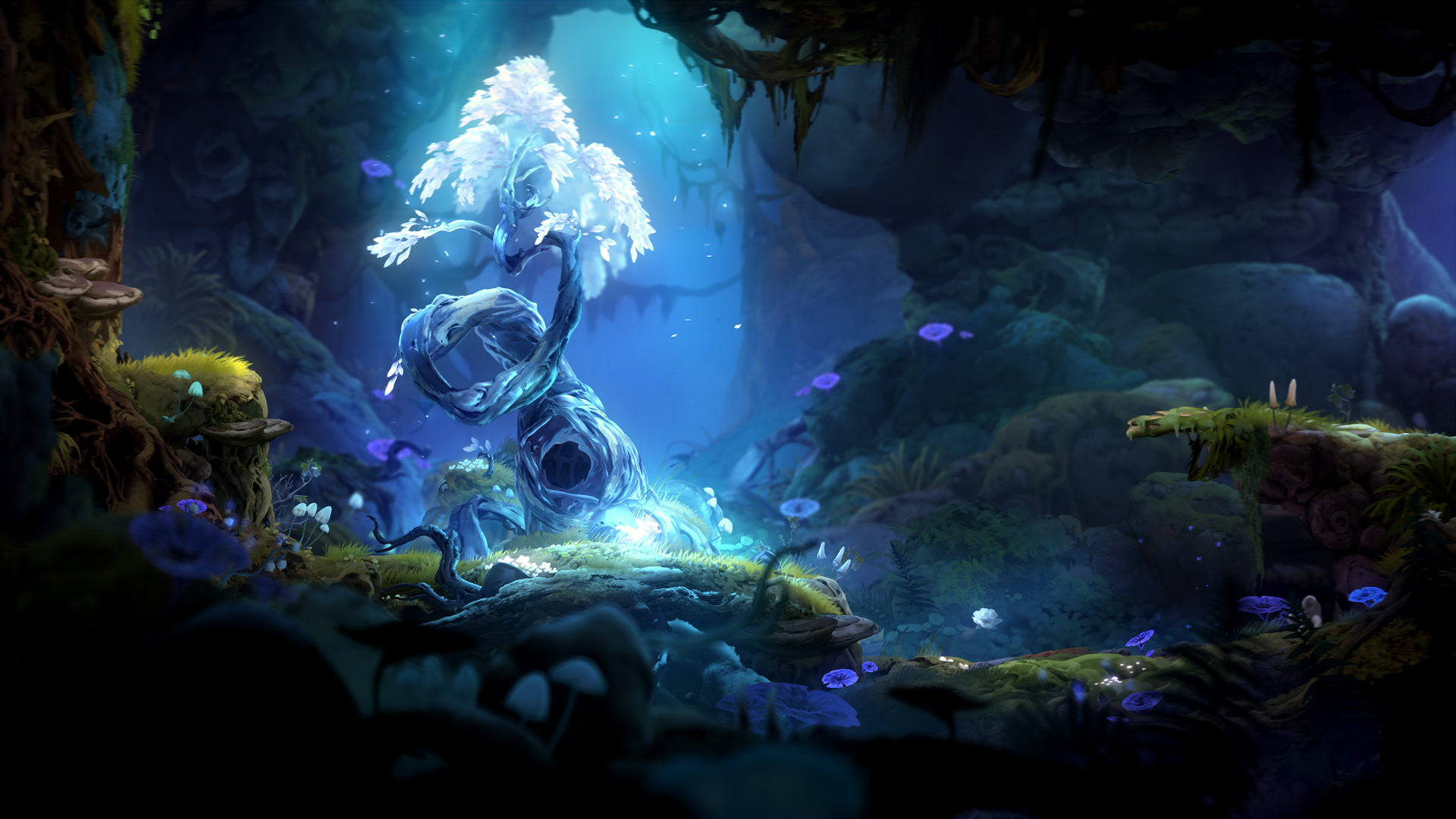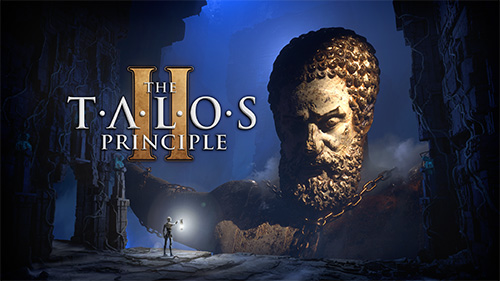
Croteam’s original Talos Principle creates a unique atmosphere, even among the niche genre of first-person puzzle games it sits in. The game’s imagery recalls long-dead civilisations now sitting in ruins, with distant wisps of melodic music permeating the air, as the plot is conservatively doled out in text logs you find stashed around levels, punctuated by confronting conversations with a nihilistic DOS computer. There is quite a lot of story to unpack, but much of it is optionally engaged with, as the game is confident you’ll understand the broad strokes from subtext and presentation. That booming voice in the sky proclaiming to be God probably isn’t quite on the level, as he starts spouting computer errors, and the idyllic garden he’s created for you most likely is some kind of game, given its important ‘sigils’ are brightly coloured tetronimos from Tetris.
Thus, The Talos Principle II can be jarring soon after starting it up, as to just how direct the story is this time. There are cinematic cutscenes, scores of voiced characters you can directly interact with, CODEC conversations, moments when the camera even leaves your character’s perspective for them to take non-player controlled actions. There’s an increase in ambition and scope across the board in Talos II, which are the right ingredients for a long-awaited sequel, and the result is an experience that while familiar, feels markedly different to its predecessor.
That ambition is built into the premise, which takes place 1,000 years after the original game. As established there, humanity was wiped out by a plague released by melting permafrost, although a small team of researchers was able to create a system that would outlive humanity that was capable of eventually generating true AI, which could become humanity’s successsor. In the original game, the player character was that AI, now named Athena, who went on to found a new civilisation of robotic individuals who consider themselves to be humans. Hundreds of years after Athena mysteriously disappears, this civilisation is now grappling with the debate on whether to grow and expand across the Earth, or to stop at 1,000 individuals, a ‘Goal’ set up by Athena before she left. Your character in Talos II, the 1,000th robot created, wakes up just in time for widespread celebrations at your birth in the city, as well as to witness a visit by spectral entities that present themselves as the Prometheus and Pandora of Greek mythology. These entities originate from a previously-unexplored archipelago, so an expedition is mounted with you in tow to visit these islands and find out what exactly’s going on.
That’s quite a lot of backstory to digest, so maybe that’s why Croteam felt the need to include so much dialogue covering it all. You, as 1K, are able to explore the robot city and talk to many of its inhabitants, the camera zooming in to highlight their faces in a very Bethesda-like manner. The city is actually quite interesting, especially as you come to understand just how human-like these robots are, not only in their hopes and dreams but also in their foibles and failings.
As the action moves to the islands, an accompanying team of digital explorers comes with, and while getting to know them is pleasant and relatively optional, what isn’t so optional is their need to dissect every twist and turn of the unfurling mystery. Rarely any incident goes uncommented upon, without the team needing to express amazement and what happened, everyone pitching in their feelings and thoughts, and even chasing you up after the fact to get your personal take. It’s so much at the extreme opposite end of the storytelling present in the original, and much of the time it feels like it doesn’t know when to quiet down and just trust in the player to comprehend what’s going on for themselves. Talos II ultimately has some interesting philosophical points to make, mostly very optimistic and humanist, but it is also missing that dark streak that a character like Milton brought to the original, and while there seems to be some influence in the decisions you make, the overall story feels like it has its finger on the scale on the side of overwhelming belief in the positive potential of mankind.
That all said, the other half of the equation in The Talos Principle II are the strange, beautiful islands to explore and the puzzles they contain. The puzzles are very much in the vein of those found in the first game, largely revolving around redirecting coloured beams of light, or inhibiting or enabling various mechanisms to progress further. This time around several new tools are added that further complicate puzzles, such as introducing green light to fill out the RGB spectrum of colours, new gadgets that reverse the colour of light or exclude others, and more exciting ones that let you tunnel Portal-style through certain surfaces or very useful teleportation pads.
As the levels progress, you’ll find that they largely revolve around you finding the correct order of tasks, and while the regular set of levels wasn’t too difficult, there were plenty of head-slapping moments in the ‘lost’ levels littered around the islands, along with the more difficult ‘golden’ puzzles offered towards the end. Beyond these, there are also rewards for exploration, including essential ‘labs’ that deliver further story information, and further challenges from Prometheus, Pandora and the Sphinx, which often require you to think outside the box and fully understand the layout of each island. These are rewarding, if sometimes either too vague or too easy.
The islands themselves are beautifully crafted, appearing as variations on modern art plunked in the middle of pristine natural environments, often recalling ancient architecture while still reflecting an artificial origin. They are slightly marred by some strange graphical glitches on console, that dither shadows and fog in strange ways, as well as a somewhat choppy frame-rate whether played on Performance or Quality mode. However, the music is also worth noting as really evocative both of the futuristic setting of the game and the adventurous spirit of you as an explorer. It’s very The Hitchhiker’s Guide to the Galaxy meets modern day, and it works very well.
I will say that Croteam’s ambition with The Talos Principle II is admirable, from its premise to its scope to its design. The developers really tried to produce a huge cinematic package with this sequel that pushes the themes of the original further, and while the puzzles are enjoyable and the characters cute to get to know, it does feel like a little something has been lost in the process, something that was unique and special about the first game. However, the game has something to say about the human spirit and its place in the universe, and it does so through inventive and beautiful audio and visual design, that pairs well with the puzzle gameplay that expands on the basics of the first game. When The Talos Principle II calms down, it’s a really satisfying puzzler.
-Really creative visual design, with plenty of mysterious islands to explore -Increased ambition both in puzzle design and narrative
-The story often doesn't know when to calm down and trust you to understand what's going on

